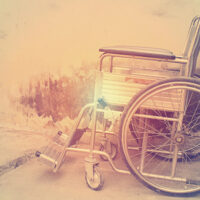What Are the Most Common Signs of Nursing Home Abuse?

As the aging population in America increases, more and more elderly Americans are turning to nursing homes for the care that they need. Studies show that as the population continues to age in the future, more than half of all Americans will need some type of long-term care.
While most Alabamians assume that nursing home care will not only be sufficient, but exceptional, the data shows that this simply isn’t true. In fact, there are hundreds of thousands of complaints filed against nursing homes throughout the nation each year, with the number of complaints continually increasing.
If you are someone who has a family member or other loved one who is residing within a nursing home, it’s important that you familiarize yourself with some of the common signs of nursing home abuse.
Warning Signs of Nursing Home Abuse or Neglect
If you notice any of the following, it could be a sign that nursing home abuse or neglect is occurring:
- Unexplained injuries or hospitalization. There is no doubt that injuries in a nursing home affect residents frequently, even those who are receiving the level of care that they need and deserve. Unfortunately, however, unexplained injuries or hospitalizations may be a sign that something illegal or unethical is occurring. If you notice bruises, lacerations, bone fractures, or other unexplained injuries, these injuries may be a sign of abuse. You should demand an explanation and, if none is provided, you should not hesitate to report your suspicions to a nursing home manager.
- Bedsores/pressure ulcers Bedsores, or pressure ulcers, are sores that develop on areas of the skin that sustain continued pressure as a result of sitting or lying down without moving. These sores, which are extremely painful and have the potential to lead to serious and life-threatening infections, are completely preventable, and happen when the blood supply to the affected area is cut off. Nursing home staff members are responsible for moving patients frequently to ensure that this does not happen.
- Resident fear of nursing home staff. If a nursing home resident is clearly fearful of a nursing home staff member or the nursing home in general, it may very well be because neglect or abuse is occurring. Do not discount your loved one’s fears.
- Deterioration in condition. Elderly people, especially those who are suffering from certain health conditions, will inevitably deteriorate in wellbeing – this is a normal part of aging. But deterioration that is rapid or unexplained, such as severe weight loss, may be a sign of a bigger problem.
- Falls or other accidents. Again, some nursing home accidents occur even when a nursing home resident is receiving the care that they need and deserve. But other times, accidents would never occur but for abuse or negligence. For example, slip and fall accidents, becoming stuck in bed rail accidents, and other accident types should never happen, and are almost always preventable when proper care is exercised.
- Depression or other psychological or emotional changes. Experiencing fear, depression, or anxiety about being placed in a nursing home and changing one’s lifestyle is normal. But if you notice an acute change in your loved one’s psychological or emotional state that is unexplained, it may be because they are a victim of nursing home abuse.
- Financial changes. Abuse isn’t always physical or psychological in nature; sometimes, financial exploitation of an elderly resident occurs. If you notice any major changes to your loved one’s economic circumstances, it may be a sign that financial abuse is taking place.
- Poor hygiene. Many nursing home residents do not have the physical or mental capacity to perform self-care, and therefore rely on nursing home staff members for help. If you notice poor hygiene, this is likely indicative that, at the very least, nursing home neglect is occurring.
- Unsanitary or unsafe conditions. Finally, pay attention to the condition of the nursing home when you visit – do you notice anything unsanitary or unsafe? Unsanitary or unsafe conditions aren’t necessarily indicative of abuse, but they are a sign of nursing home neglect, and could have serious consequences for residents.
What to Do if You Suspect Nursing Home Abuse
If you suspect that nursing home abuse is occurring, it’s important that you notify a nursing home manager or supervisor immediately. If action is not taken, you should consider filing a complaint with the Alabama Department of Public Health, Bureau of Health Provider Standards. If actual harm has befallen your loved one as a result of neglect or abuse, you may have a nursing home abuse civil case.
For guidance in navigating the law, reporting abuse, and filing a civil claim for damages against a nursing home, call the office of Chip Nix, Attorney at Law today at 334-279-7770 for your free consultation. You may also message us online or visit our Montgomery office in person at your convenience.





